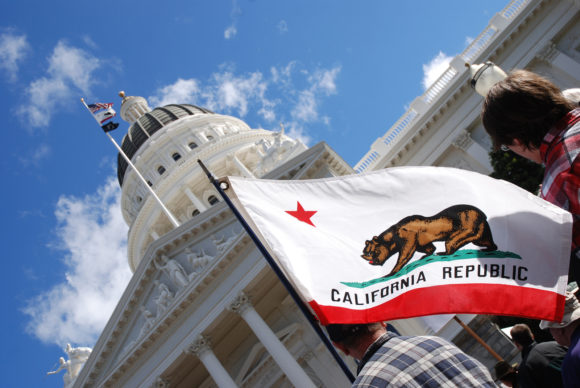Legislation that creates potential for more employment law claims in California and a measure that may give attorneys a new tool to extract larger settlements from Colorado auto insurers are among new laws that will impact insurance claims professionals in 2020.
California’s Assembly Bill 5 requires that the ABC test spelled out by the California Supreme Court in Dynamex v. Superior Court of Los Angeles be used for classifying all workers effective on Jan. 1. Essentially, the 2018 decision created a presumption that workers are employees unless the employer can show that:
- A. The worker is free from the control and direction of the hiring entity.
- B. The worker performs work that is outside the usual course of the hiring entity’s business.
- C. The worker is customarily engaged in an independently established trade, occupation, or business of the same nature as the work performed.
The Supreme Court ruling applied only to wage orders. AB 5 codifies the standard to all provisions of the California Labor code unless another definition of “employee” is provided.
The legislation requires many workers who now may classified as independent contractors to be classified as employees, but creates some 50 exceptions for specific occupations and industries, according to a blog post by the Faegre Baker Daniels law firm. Those include insurance brokers, physicians, architects and securities brokers. Newspaper delivery contractors also are an exception from the new stricter standard, but only until 2021, according to the law firm.
The law takes effect for the purposes of workers’ compensation claims on July 1, 2020.
In Colorado, House Bill 1283, effective Jan. 1, will require commercial and personal auto liability insurers to provide the name of each insured party, the limits of liability coverage and a copy of then policy within 30 days after receiving a written request from a claimant. An insurer that violates the disclosure requirement is liable to the requesting claimant for damages in an amount of $100 per day.
Law clerk Blaire Bayliss of the Tyson & Mendes law firm said in a blog post that auto insurers should be aware of the increased need to obtain defense council early on to avoid unnecessary litigation.
Bayliss said the litigation is a two-edged sword. Litigation may be avoided when the policy contains minimal damage limits. On the other hand: “In cases involving large policies with high limits, plaintiff’s council may peruse litigation to maximize the value of the claim, increasing insurance providers’ need for defense council early in the process,” Bayliss said.
Several other state laws will take effect Jan. 1 that will impact insurance claims professionals:
Michigan
Senate Bill 1 rescinds a unique provision of Michigan insurance law that requires auto insurers to provide lifetime personal injury benefits to policyholders. The amended statutes will allow motorists to opt out of personal injury protection entirely or opt for lower limits.
The legislation is expected to cut Michigan’s highest-in the nation auto insurance rates in half, according to press reports. Motorists will see one impact immediately. The Michigan Catastrophic Claims Association, which reimburses insurers for excess personal injury claims, announced last month that it is reducing its assessment on policies to $100 from $220.
Louisiana
House Bill 288 provides that guaranty associations are entitled to any collateral posted by an employer who purchased a large-deductible insurance company. If an insurer is liquidated, the receiver will bill insureds for the deductible amounts owed under the policy.
Oregon
House Bill 2312 will require sellers’ property disclosure forms to indicate that flood insurance may be required for homes located in designated floodplains.
Was this article valuable?
Here are more articles you may enjoy.


 Property Restoration Industry: A Culture in Need of Repair?
Property Restoration Industry: A Culture in Need of Repair?  Oregon Schools Sued for $9M After Young Girl Allegedly Raped
Oregon Schools Sued for $9M After Young Girl Allegedly Raped  Dog-Related Injury Claim Payouts Hit $1.12B in 2023, Report Shows
Dog-Related Injury Claim Payouts Hit $1.12B in 2023, Report Shows  MGM Resorts Sues US FTC to Stop Investigation of Casino Hack
MGM Resorts Sues US FTC to Stop Investigation of Casino Hack 